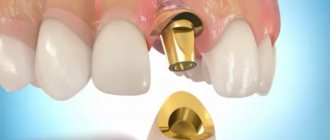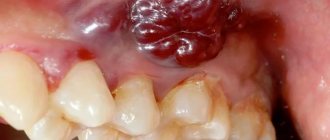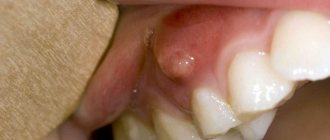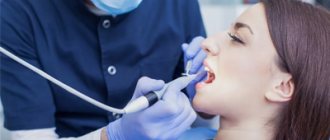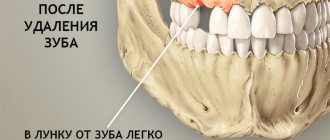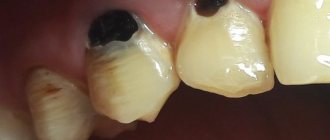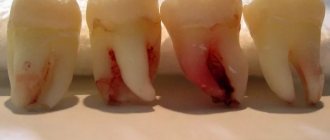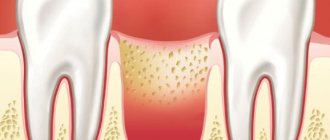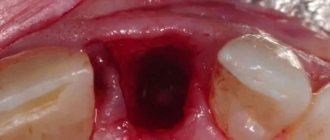Proper oral care after tooth extraction
To prevent unwanted consequences from occurring, it is important not to do the following:
- touch the wound with your tongue or use other foreign objects for this,
- rinse your mouth generously in the first two days,
- make sudden movements with the facial muscles,
- plunge into hot water or rinse with it,
- Hard to work,
- eat food in the first 3 hours that follow the procedure, it is permissible to drink, but refrain from boiling water.
- You should also abstain from cigarettes at this time,
- alcohol is contraindicated within 24 hours after surgery. If your doctor prescribes the use of antibiotics, you should not drink alcohol until the end of the course of therapy.
How to remove a tooth if implantation is planned -
If you are planning to install a dental implant in place of an extracted tooth, then under no circumstances should you first remove the tooth and then only go to an implantologist for a consultation - otherwise, along with the implant, you will then have to spend money on bone grafting. A tooth should only be removed by an implantologist, and this should be done as atraumatically as possible for the bone tissue, and bone material should be placed in the hole itself, covered with a membrane, and the hole should be sutured tightly.
And then after 3 months you will receive excellent bone for tooth implantation, and will not need bone grafting. In addition, there are models of implants that can be installed in the socket of an extracted tooth (immediately after its extraction) - this is the so-called immediate implantation technique. At the link below you can see the online implantation calculator we have developed. By selecting missing teeth and the implant option, you will immediately see the average cost of installing implants in your case.
→ ONLINE IMPLANTATION COST CALCULATOR »»»
A cold compress will prevent swelling
Immediately after the manipulations, it is necessary to apply a cold compress, since after tooth extraction the cheek may swell.
To do this, take some chilled meat products or ice and apply it, after wrapping it in a cloth. Such actions will help to minimize or even eliminate swelling of the soft areas of the face that can form in the event of a serious intervention.
It is recommended to keep the ice for about 5 minutes, apply it 3-4 times, taking a break between applications. It is important to apply cold immediately after surgery, since further this action will not bring the desired effect. Under no circumstances should you use a warm compress or warm the tissue in any other way - thoughtless intervention can cause suppuration.
Installation of the prosthesis immediately after removal (within 24 hours)
Clients are always interested in how many days after an injury or surgery they can get dentures. Dentistry has express methods for instantly eliminating smile defects. There is no need to hide an ugly gap from others and experience discomfort when communicating! We are talking about simultaneous implantation, which is performed in one stage. The dentist installs an artificial root into the resulting hole and immediately puts on a crown, which is prepared in advance. It creates a load on the jaw apparatus and prevents atrophy.
Another option is immediate dentures, which are temporary and are designed for 3-4 months of use.
If your gums bleed after tooth extraction
You can stop bleeding in a number of effective ways. In most cases, this disease affects people with high blood pressure with hypertension or patients who have had a large vessel damaged.
It is worth noting that due to psychological overload and stress during activities, even in people with normal health, blood pressure may rise. The first step is to apply a tightly rolled piece of sterile bandage to the bleeding site, and then measure the patient’s blood pressure. If it is elevated, you need to resort to medications.
With increased blood pressure, the chance of hematoma and blood appearing after tooth extraction increases. This development of events is dangerous due to suppuration, which will then have to be opened, and bleeding can cause dizziness and weakness.
If bleeding appears several hours after removal, you should not wait for the situation to normalize, but seek medical help.
Diabetes mellitus during tooth extraction
If a person has this disease, it is recommended to measure their sugar levels immediately after surgery. Tension leads to the production of adrenaline, which can increase the rate. By measuring sugar, a person will know about his condition and will be able to prevent side effects.
If a gauze pad is placed on the gum
A gauze swab is placed on the hole if it is etching. In other situations, the use of this remedy is undesirable, as it can provoke inflammation. As the tissue is removed, the blood clot that has formed in the socket is also removed.
If the tissue lining is on the wound, it is necessary to carefully remove it after a certain period of time after removing the tooth. A tampon that has absorbed a certain amount of liquid automatically becomes a breeding ground for a wide range of bacteria. You should not keep it in your mouth for a long time to prevent the appearance of inflammatory processes in the hole that remains after tooth extraction.
Antiseptic rinses for suppurations
There is no need to rinse your mouth intensively; instead, use “baths”. In order not to disturb the damaged tissues, take a special anti-inflammatory solution into your mouth, keep it inside, and then spit it out.
Complications: inflammation of the socket, or alveolitis
Inflammation occurs due to infection entering the wound. You should especially beware of it if the process of tooth extraction was traumatic and difficult. Most often the problem occurs for the following reasons:
- disturbance of a blood clot in the wound;
- ingress of tooth fragments or foreign particles into it;
- insufficient sanitation of the resulting hole;
- violation of hygiene recommendations.
Signs of alveolitis may occur 2-3 days after surgery. It is impossible to confuse them with anything. These include pain, inflammation, increased body temperature, an unpleasant odor, and even the discharge of pus. If only one symptom appears, you still need to urgently go to a specialist: the problem will not go away on its own, but will only get worse.
The maximum that a patient can do to avoid complications is to follow all the surgeon’s recommendations, including hygiene ones. But do it in moderation. Take care of yourself and your health!
Baths should be carried out if:
- an incision was made to expose the gumboil;
- the tooth was removed due to inflammatory processes;
- there are harmful deposits on the teeth and caries;
- removal of the root of a tooth with caries
For procedures with baths, you can use an aqueous solution of chlorhexidine with a concentration of 0.05%. This drug is inexpensive, it can be purchased ready-made, it has excellent antiseptic effects, and tastes bitter. Such procedures must be carried out 3 times a day. The solution must be kept in the mouth for 1 minute.
How is the operation performed?
Before removal, the dentist examines the patient’s oral cavity and takes an x-ray. After diagnosis, he selects a surgical procedure and explains to the patient why it is necessary to remove the wisdom tooth. Removal can be simple or complex. The second operation is more difficult, as the gums and bones are affected.
Easy removal
It is carried out in the same way as on ordinary teeth. Suitable for removal of the upper eights if there are no serious developmental abnormalities or complications. The dental unit is removed with forceps, without the use of other instruments. The operation is low-traumatic and takes from 10 to 30 minutes.
Step-by-step removal of the 8th tooth:
- anesthesia;
- extraction from the hole;
- removal of fragments if the tooth is crumbled;
- treating the wound with an anesthetic.
After the operation, the doctor gives the patient recommendations for oral care over the next few days. If necessary, prescribes medications for pain and to prevent wound infection.
Difficult removal
It is carried out on the lower molars or on the upper ones, if the coronal part is practically destroyed, there are pathologies in the roots, in case of developmental anomalies, complications. The surgeon can use a scalpel, drill and other surgical instruments. Before the procedure, the patient must tell the doctor about the presence of diseases or allergies to medications to exclude contraindications. How long it takes to remove a wisdom tooth depends on the clinical picture. The duration of surgical procedures is from half an hour to two hours.
Operation stages:
- pain relief with local anesthetics;
- antiseptic surface treatment;
- cutting and detachment of a flap of gingival tissue;
- drilling the bone, extracting a dental unit;
- treatment of the wound with drugs;
- suturing.
After the procedure, the surgeon advises the patient about precautions during the postoperative period and prescribes antibacterial and painkillers. It is necessary to visit the doctor again to examine the wound.
If your gums hurt after tooth extraction
Tooth extraction leads to damage to soft tissues, which contain a large number of nerves. The doctor performs the procedures under local anesthesia, so the patient feels discomfort only in one thing - the need to spend a certain amount of time with his mouth wide open.
When the analgesic effect ends and the tooth has already been removed, the pain returns. Usually they are of a “aching” nature and do not fundamentally interfere with normal life activities. But in some cases the pain can be intense.
If the tooth extraction was not caused by inflammatory processes, you can avoid the use of painkillers. If pain relief is necessary to avoid severe pain after tooth extraction, it is recommended to take an analgesic until the anesthetic wears off.
Using painkillers after tooth extraction
If you experience intense pain, you can resort to using “Ketans”; The medicine is dispensed by pharmacists in pharmacies only with a prescription - this is due to the presence of side effects. Severe pain can occur during complex and lengthy medical intervention, especially if it was accompanied by drilling of the bone around the tooth, or if the operation was performed poorly, unprofessionally and traumatically.
“Ketorol” (an analogue of “Ketanov”), “Analgin” (will help reduce mild pain syndrome), “Spazmalgon” (in addition to the analgesic effect has an antiseptic effect), “Baralgin” (a drug that contains “Analgin” in its composition).
Expert opinion
Roman Borisovich Alekperov
orthopedic dentist
Experience: 24 years
If you are just planning to visit a surgeon for tooth extraction, consider the option of one-stage implantation. This unique method involves placing an implant into the resulting socket immediately after extraction. No additional manipulations - incisions or detachment of a mucosal flap, as with the classic protocol - are performed. This gentle method will allow you to resolve the issue of tooth restoration immediately at the time of its removal. Important: there are contraindications for immediate implantation! Please clarify the possibility of its use in your case during your consultation.
Wisdom tooth removal
Wisdom teeth are the painter or chewing teeth located at the end. When chewing, they do not play a significant role; the structure is no different from ordinary teeth.
There are several generally accepted indications for removal:
- ingrowth of roots into the maxillary sinus,
- partial eruption
- facial neuralgia,
- inclined or lateral position,
- caries damage.
When removing a wisdom tooth, painkillers are used to relieve pain. Consequences after the operation may occur depending on the complexity of the operation, surrounding tissues, location, and access to the tooth.
Negative consequences may occur if the patient does not adhere to the doctor's orders. Baths of soda and herbal decoctions will also help alleviate the condition after removal. It is forbidden to rinse; it is important to preserve the blood clot, which protects the wound from infection.
Contraindications
Thanks to the variety of techniques for each person, you can choose a way to restore the beauty of your smile. All dentures have indications for use and contraindications. The decision to replace a lost element after amputation is made by the attending physician based on the results of dental diagnostics, taking into account the age and condition of the body.
As for the general reasons, experts do not recommend performing surgical procedures if you are pregnant, undergoing rehabilitation after a serious illness or complex operation, or are sick with ARVI. You should not install implants or dentures during periods of exacerbation of chronic diseases, exhaustion or acute stress.
Tell your doctor if you are allergic to anesthetics or take any medications. Some drugs affect blood clotting and the rate of tissue regeneration. This can create problems during the procedure and while the wound is healing.
Often, poor oral hygiene is an obstacle to treatment. This temporary contraindication can be eliminated through therapeutic measures.
In what cases is it necessary to remove the nerve of a tooth?
Removing the nerve from a tooth kills it. Almost no nutrients are supplied, causing it to become darker and weaker. During treatment, dentists try to keep the dental nerve alive, but sometimes they have to take forced measures to put the oral cavity in order.
Nerve removal is necessary if:
- Deep caries.
If the disease has destroyed almost the entire tooth, there is nothing to save; the main thing for the doctor is to prevent further destructive process.
- Prosthetics.
To install the prosthesis, an incision must be made in the pulp chamber. This is especially necessary in situations where teeth grow at an inclined angle.
- Incorrect treatment in the past.
This can happen if during treatment the doctor resorted to opening the pulp chamber. In this case, it is necessary to partially remove the nerve.
- Mechanical damage.
Injury can lead to chips in the enamel where the nerve is located. If the front teeth are damaged, the nerve is not completely removed.
Antibiotic therapy after removal of unhealthy teeth
Antibiotics are prescribed by the attending physician - dentist. Drugs are prescribed in case of difficult extraction, to prevent the risk of complications if the tooth was removed due to inflammatory processes.
The drug usually prescribed is Lincomycin 0.25. Take capsules after tooth extraction for 5 days, 2 capsules 3 times. If purulent inflammation is present, the antibiotic is prescribed as intramuscular injections.
Those who suffer from intestinal and stomach disorders can take antibiotics in effervescent forms, for example, Unidox Solutab and Flemoxin Solutab.
Implant installation
Prosthetics on implants is recognized as the optimal way to restore the integrity of the dentition. But to use this method, you need to wait until the bone tissue is completely restored. As a rule, this takes from three to six months. The healing time depends on where the extracted tooth was located.
To perform this operation, the bone must have sufficient height and width. If hard tissue deficiency is diagnosed, bone grafting may be necessary. In this case, delayed implantation is planned, and it may take about a year before it takes place.
Clinic doctors
Modern tooth extraction without pain and shock!
And this is not an exaggeration. Even the most complex tooth extraction procedures, with the right approach, will be comfortable and quick.
The tooth extraction procedure at DentaBravo is painless, takes an average of half an hour and brings you great relief. And right in this section you will find answers to your questions. Read and get rid of your fears!
Removal (extraction) is one of the most common operations in dentistry. As a rule, it consists of the following stages:
- taking an anamnesis (the doctor finds out whether the patient is allergic to medications, whether the person suffers from high blood pressure, heart disease and some other diseases);
- anesthesia;
- preparing the tooth for extraction;
- extraction of a tooth from the alveolus;
- medicinal treatment of the hole.
When is it necessary to remove teeth?
Molar tooth extraction can be performed for planned or emergency reasons. In the first case, teeth are removed that cannot be treated, are incorrectly located and interfere with the growth of other teeth, or injure the mucous membrane of the oral cavity. Emergency removal is necessary if a purulent inflammatory process develops in the periodontium, as well as in the presence of a number of diseases (periostitis, maxillary abscess, etc.)
Doesn't tooth extraction hurt?
Modern dentistry has all the means to remove a tooth absolutely painlessly. The most commonly used local anesthesia is an injection. Sometimes anesthesia is carried out in two stages: first, the doctor treats the gums with a solution or gel that reduces sensitivity, then the anesthetic solution is injected into the gums using a syringe.
What is complex removal?
This is a surgical operation that is performed if the tooth cannot be removed in the usual way. Complex tooth extraction in dentistry is necessary when it comes to unerupted (impacted) and incorrectly positioned (dystopic) teeth. It is difficult to remove the root of a tooth, as well as a tooth fused with bone tissue. The removal of a broken tooth can also be included in this category.
How long does it take to remove a tooth?
The tooth extraction procedure takes about fifteen to twenty minutes on average. In some situations, this may require more time (for example, if you have to remove a tooth in parts), but usually no more than thirty to forty minutes. Sometimes removal can take up to three hours. It all depends on the specific clinical case.
How many teeth can be removed at one time?
It is impossible to give an exact number. Usually no more than one or two teeth are removed at a time. If the teeth are mobile and the removal is simple, more can be removed. For complex extractions, it is not recommended to remove more than one tooth.
How long will it take for gums to heal?
If the tooth extraction operation is carried out correctly, the gums heal quite quickly - this may take about one week. Sometimes, if after extraction the tooth socket is not filled with a blood clot, it takes 2-3 weeks for complete healing.
How long after can I eat after tooth extraction? You are allowed to eat no earlier than two to three hours after surgery, and you can drink after an hour. However, during the first 24 hours, it is recommended to eat only soft or liquid foods to avoid additional injury to the gums. On the day of surgery, you should avoid hot and cold foods, as well as drinking alcohol.
How to care for your teeth after tooth extraction?
After tooth extraction, it is not recommended to rinse your mouth. This is due to the fact that during the rinsing process a blood clot may fall out of the hole, which can lead to inflammation. You need to brush your teeth very carefully, without touching the wound.
Is an examination necessary the next day after tooth extraction?
Usually this is not required. However, if a complex removal was performed, the doctor may order a follow-up examination. Then the next day you will have to visit the dentist to make sure that the procedure was successful, the socket is in order and there are no complications. If a visit to the doctor is not planned, but you have cause for concern, do not hesitate to go to see a specialist.
How soon can prosthetics begin?
Typically, prosthetics begin no less than one month after tooth extraction. If you plan to install a fixed bridge, it is enough to wait about three weeks. In those cases where dental implantation is proposed, it is advisable that more than a month pass.
How much does tooth extraction cost?
The cost of this service depends on the complexity of the procedure. For example, if a simple removal of a front tooth is required, dental manipulation will cost the patient much less than if it is necessary to remove an unerupted “wisdom tooth” from the mouth. The cost of tooth extraction in our dentistry can be found here.
Price
The Center for Private Dentistry Dr. Levin provides a case payment system.
- When implanting Nobel Biocare PMC Select or Groovy, the cost includes the surgical stages, including the design model, surgery, anesthesia, and all necessary procedures. The price is indicated taking into account the preparatory stage.
- Removal is paid separately, the price includes surgery, inflammation relief, socket rehabilitation, consumables, anesthesia.
- The case for installing a metal-free zirconium dioxide crown includes all stages - impressions, manufacturing, installation.
- Sinus lifting and any bone tissue augmentation operations are paid separately.
